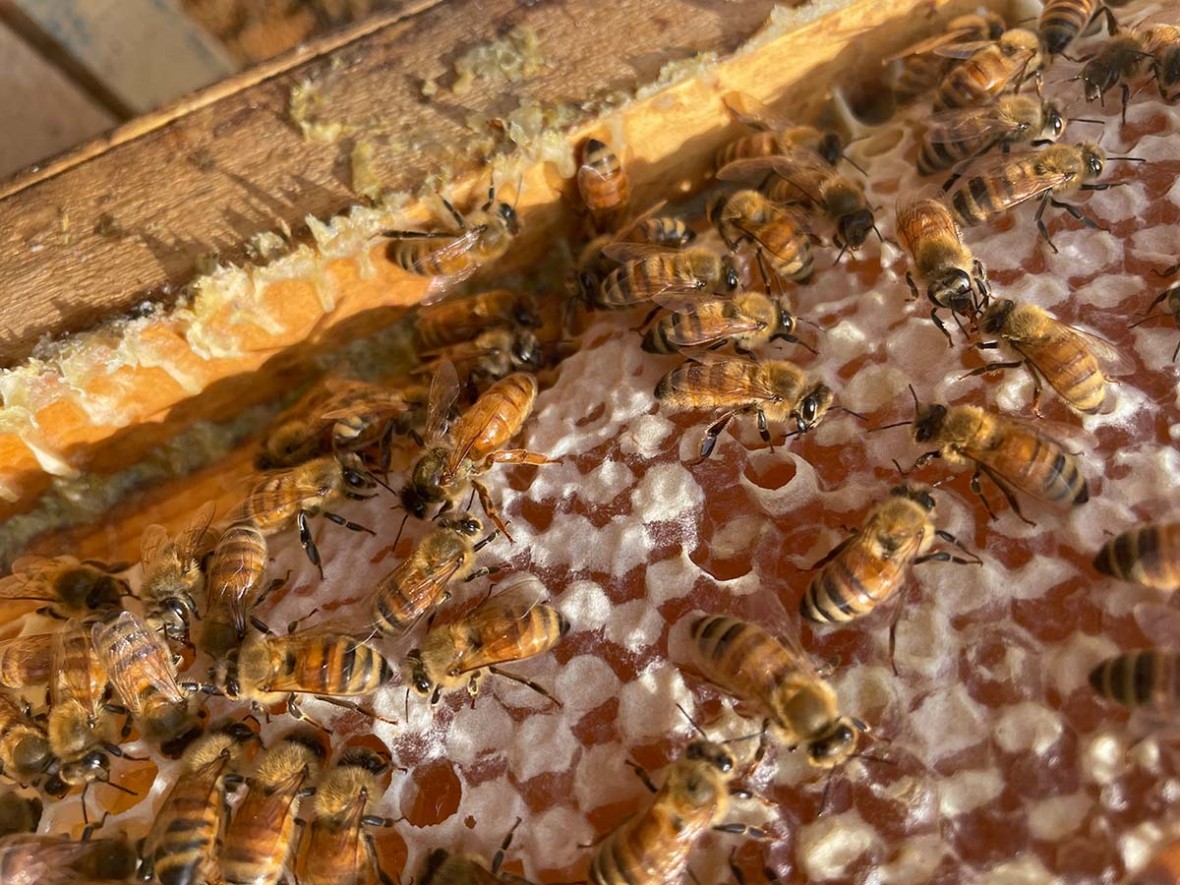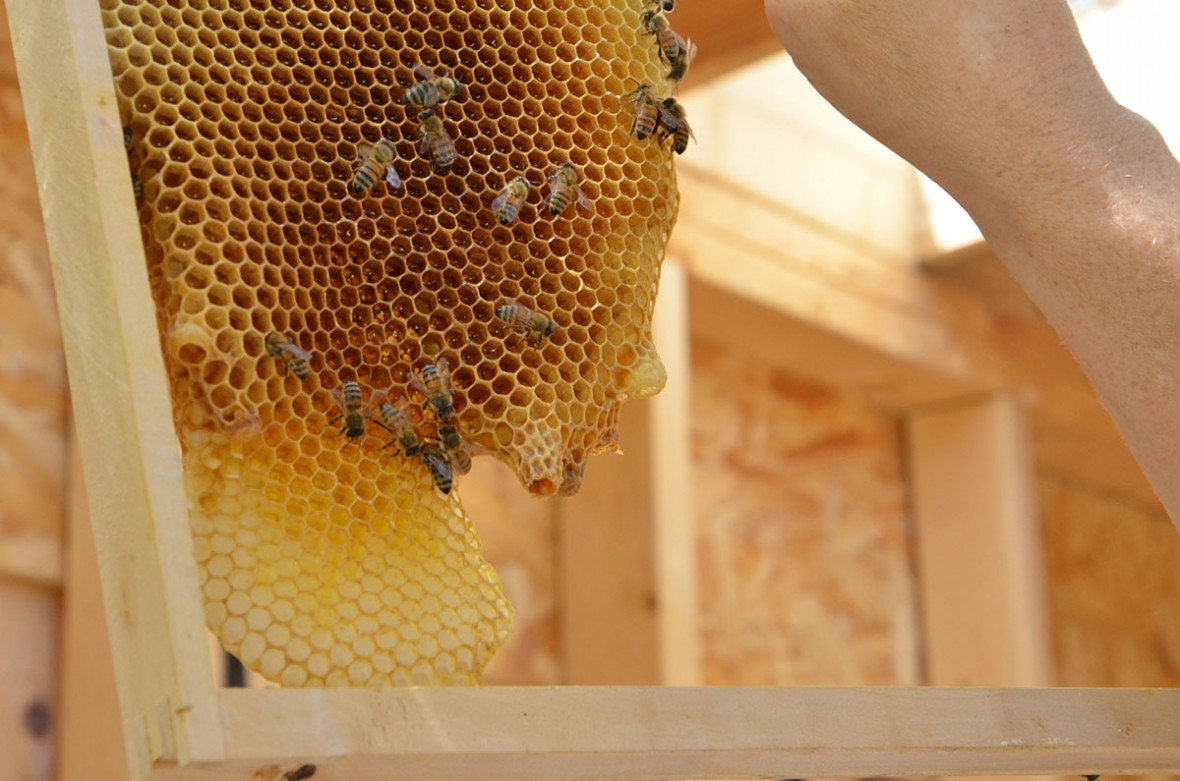
Beekeeping is an act of hope. There are so many variables to consider when caring for beehives. Access to clean water, sources of nectar and pollen from plants that bloom from spring to fall are all essential for a healthy bee. The added uncertainty of colony collapse, varroa mites and the diseases they might introduce, swarming and abscondment, pesticide exposure and the uncertainties of extreme climate fluctuation are challenges all beekeepers face. And yet we persist. We are fascinated by bee behavior and relationships, and understand the crucial role bees play in keeping plants and thereby humans alive.
Our organic farming practices and the multitude of blooming plants on the farm during all seasons are certainly beneficial to the bees. But because bees explore beyond our farm, we have lost some to suspected pesticide exposure, as well as mites. Most beekeepers experience this, but hope is eternal, like spring, and this has been a good bee year so far.

Overall, our hives are doing very well. We were able to split one hive twice into two new hives, each with a Los Poblanos-raised queen, ensuring the benefit of local genetics in the brood being raised on the farm. All the hives have fat, strong queens. As summer winds down, the bees are already preparing for winter and putting up stores of honey and bee bread (pollen packed into honeycomb cells with added bee enzymes) for the long, cold months ahead.
We harvest some of the honey, being sure to leave plenty for the bees, and we savor the flavors gathered by these tiny dynamos of nature. We taste the flowers of the seasons and appreciate what a gift the honey is. Golden and rich, like the autumn days ahead, the taste of honey holds the hope for another good year to come.
